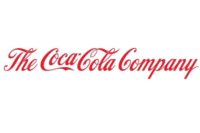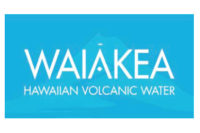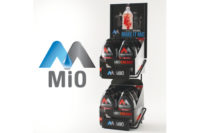Drink mixes capitalize on flavor trends
Incorporation of different beverage categories gives drink mixes multiple growth opportunities






Although the term mixologist is commonly referenced in association with alcohol products, innovations within the drink mix category are allowing consumers to become mixologists in the non-alcohol arena. However, a larger portion of new product launches are coming from the liquid concentrates side versus the traditional powdered drink mix products, making for a mixed bag of results.
“The U.S. market for powdered concentrates declined by 6 percent in [ready-to-drink] (RTD) volume terms in 2013,” says Howard Telford, beverage analyst with Chicago-based Euromonitor International. “This is three consecutive years of decline for powdered concentrates in volume terms. Many of the leading brands in U.S. powdered concentrates — particularly those positioned for children — have not done an adequate job in addressing consumer concerns regarding sugar and artificial ingredients in soft drinks. This stands in stark contrast to strong growth in U.S. liquid concentrates, where water enhancers are driving growth and creating value.”
Although flavored hot drink mixes and frost/whipped/yogurt drink mix sales are up in the low-single digits, the overall drink mix category is down 2.8 percent, totalling $1.17 billion for the 52 weeks ending April 20 in U.S. supermarkets, drug stores, mass merchandisers, gas and convenience stores, military commissaries, and select club and dollar retail chains, according to Information Resources Inc. (IRI). IRI drink mix data includes both powdered and liquid varieties.
The Chicago-based market research firm reported double-digit decreases in the breakfast drink mix segment, which accounted for less than $270,000 in sales, and single-digit decreases in the category’s largest segment: fruit drink mixes. With sales of $1.12 billion, the fruit drink mix segment experienced 3 percent contraction, according to IRI data.
Although powdered drink mixes and liquid concentrates are exhibiting performance differences, Telford suggests that the differences might not be because of cannibalization.
“It isn’t clear that the two segments — powdered and liquid concentrates — always compete directly or seek the same consumer demographics,” he says. “Products like Mio water enhancers may have more in common with RTD flavored waters and sports drinks in terms of usage occasions, while powdered concentrates — at least in the U.S. — are frequently positioned toward parents and children. Crystal Light entered the liquid concentrates space in 2013, signaling the importance of the liquid format over powdered mixes in the United States. Even Kool-Aid launched water enhancer drops as part of a brand overhaul last year.”
In the spring of 2013, Northfield, Ill.-based Kraft Foods Group Inc. launched Kool-Aid Liquid, a sugar-free liquid drink mix that consumers can squeeze into water to add flavor. A 1.62-ounce bottle, shaped like the Kool-Aid Man, contains 24 servings and comes in four flavors: Tropical Punch, Cherry, Grape and Orange. Also sugar free, the company's Crystal Light Liquid drink mixes were released in 2013 as well.
Although Kraft Foods accounts for approximately 62 percent of the fruit drink mix segment according to IRI data, it has faced competition from other major players in the beverage industry.
In the fall of 2012, Atlanta-based The Coca-Cola Co. launched its Dasani Drops water enhancers. The company has since released Powerade Zero liquid sports drink concentrates and Minute Maid Drops made with real fruit juice. PepsiCo Inc., Purchase, N.Y., also released Aquafina FlavorSplash liquid concentrates. Launched last fall, the three-SKU lineup is available nationwide.
But fruit drink releases are not the only innovations that that category saw last year. AriZona Beverages, Brooklyn, N.Y., launched its AriZona Water Enhancers line based on the company’s seven most popular products and flavors: Lemon Tea, Mucho Mango, Fruit Punch, Peach Green Tea, Arnold Palmer Half & Half, Arnold Palmer Strawberry and Golden Bear Strawberry Lemonade.
Nestlé Waters North America, Stamford, Conn., also added tea varieties to the liquid drink mix segment with its Nestea Liquid Water Enhancers.
Euromonitor’s Telford notes that the development of these different products and flavors offers more opportunities for the liquid drink mix segment.
However, the United States is not the only region in which these products are gaining steam. According to a report by Zenith International, U.S. consumption of liquid drink mixes increased 85 percent in 2013. The report also notes that the United Kingdom, France, Germany, Italy and China offer the greatest prospects for success outside of the United States.
“There is no reason why this should not become a $1 billion international market by 2015, with launches in at least 10 other countries this year,” said Zenith Chairman Richard Hall in a statement. “A year ago, we predicted 50 product variants would be available in Europe by the end of 2014, and that could well be exceeded.”
Flavor is the name of the game
Whether in the United States or internationally, the key to success for the liquid drink mix market will hinge upon offering consumers healthy and flavorful products, experts note.
“Consumers prefer healthy, natural, refreshing beverages for themselves and for their families,” Euromonitor’s Telford says. “In some cases, they seek functional benefits from the beverages and greater convenience and choice in customizing beverage flavors. Water enhancers provide a highly convenient, portable way to add flavor and refreshment, giving the consumer individual control to customize flavor additions.”
Research from Chicago-based Mintel supports the category’s healthful and flavorful aspects as well. In the market research firm’s March report “Bottled Water and Cold Beverage Mixes,” it found that of those who consume beverage mixes, two in five do so to drink more water, one-third mention on-the-go convenience, and more than half do so for flavor. “This suggests that there is an opportunity to develop new flavors to encourage increased consumption of both mixes and bottled water products,” the report states.
Euromonitor's Telford also high-lights the importance of flavor and other value-added benefits.
“Water enhancers are all about adding flavor, and flavor combinations are the key differentiator between brands,” he says. “In some cases, functional elements, such as Mio Energy, can also expand usage occasions for concentrates.”
Telford adds that brand owners still could receive competition from private-label drink mix products when it comes to more popular flavors.
“Private-label drink mixes of popular flavors have existed for some time, controlling some 29 percent of the U.S. powdered concentrate market in 2013,” he says. “Powdered concentrates have been viewed as a value proposition for some consumers, so low-priced private label is an attractive, viable alternative. Liquid water enhancers are a newer product area, although private-label products that replicate the packaging and flavor profiles of popular water enhancers are already widely available.”
Over the long term, Telford anticipates that powdered drink mixes will be challenged in the beverage market but adds that liquid drink mixes also will face some challenges that other categories are facing when it comes to consumer trends around sweeteners and artificial ingredients.
Looking for a reprint of this article?
From high-res PDFs to custom plaques, order your copy today!









